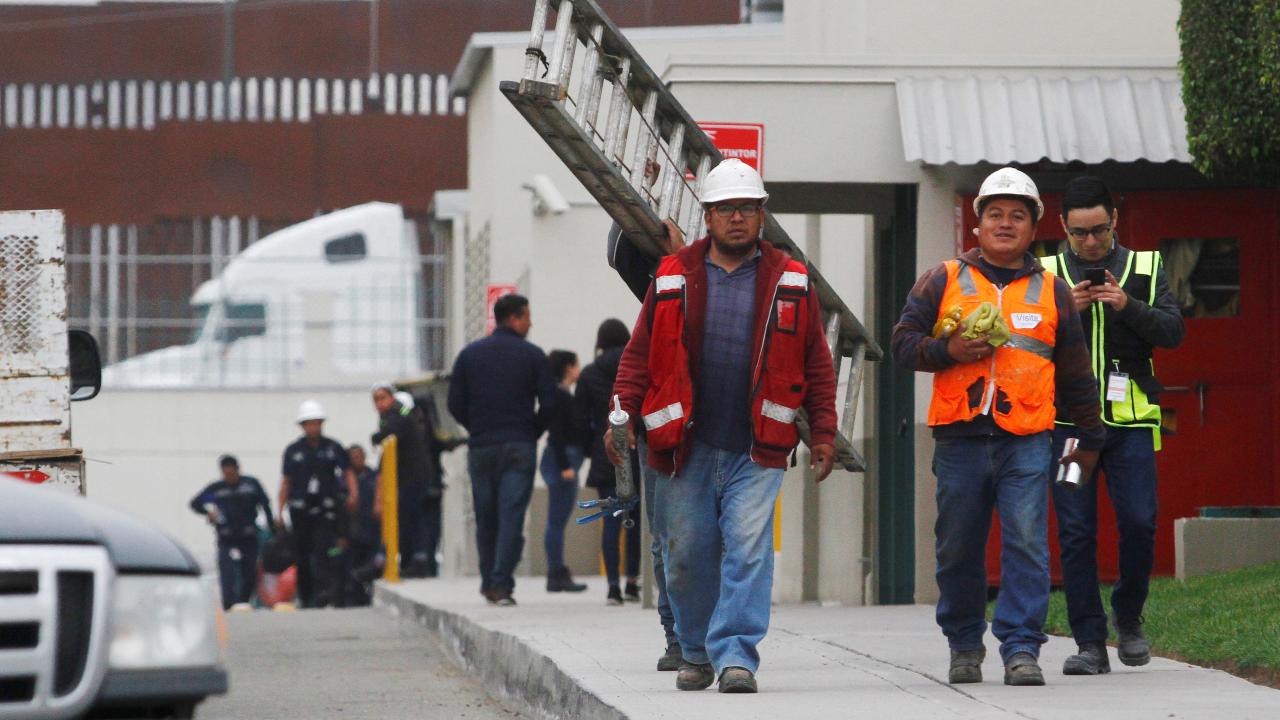
The report carried out by the International Trade Union Confederation added the Aztec country to twelve other countries that deteriorated their standards in the last year.
One of the relevant events that have occurred in international trade union structures in recent decades has been the creation of the International Trade Union Confederation (ITUC or ITUC). Launched in 2006 after the merger of the International Confederation of Free Trade Unions and the World Confederation of Labor, it became the largest union structure in the world with 207 million workers in 163 countries.
Regarding his presence, two things have been notable. One, that the ITUC has had a more active and critical role in the world of work than its predecessors. The other is that since 2014 it began to publish the Global Index of (Labor) Rights, with a subtitle that certainly revealed its intention: The worst countries in the world for workers.
The Index works with a Likert scale extended to six levels. In the first, the best countries for workers appear, where violations of their rights are sporadic. At a sixth-last level (5+), the worst countries for workers appear, where there is no guarantee for labor rights due to "the destruction of the rule of law."
Between both extremes are four mediated categories. In the categories aimed at the most negative level are countries with unguaranteed rights and countries with systematic violations of rights. Among the categories directed at the most positive level, countries with regular violations of rights and repeated violations of rights appear, in that order.
In the first CSI report (2013-2014) Mexico appeared as a systematic violator of labor rights. In the first years of the López Obrador administration, Mexico improved its position to level 3, of regular violations, recognizing the new institutional framework of the country's work and the government's effort to advance in the application of the law.
In its recently published report (2024) Mexico has returned to level 4, as a systematic violator of labor rights. With this, CSI adds Mexico to twelve other countries that (it rates) deteriorated their standards in the last year: Costa Rica, Finland, Israel, Madagascar, Nigeria, Kazakhstan, Qatar, Russia, Saudi Arabia, Sudan, Switzerland and Venezuela. From the perspective of CSI, Mexico also joins the recent global trend – and which it defines as the greatest concern:
More governments and companies that violate fundamental labor rights, (aimed at) attacking the right to strike, and the right itself to collectively demand fairer wages, along with violating democracy and the rule of law. All of this “while millions of households struggle in an exhausting scenario of reduced income and a deep-rooted cost of living crisis.”
How can we understand that CSI has returned Mexico to the position of a country that systematically violates labor rights, when the country has labor institutions that it never had and minimum wages have been constantly improved (110% effective in these years) ?
The answer is relevant, worthy of reflection and information. The premise should be to resist the extremes: from the systematic critics of the company, the government and its institutions who will take advantage of the report to say “we told you so, everything is going wrong.” But also resist the defense of the government system, and the temptation to disqualify the report, before gathering information and arguments. Therefore, it is worth remembering that CSI and its report have been important actors in global union dialogue in recent decades.
Without pretending to have the answer here, I propose some starting points for reflection.
First, the world today continues to become more complex. The same in the workplace as in several adjacent areas. Today alongside such plausible efforts for workers as the T-MEC agreement to tie trade to compliance with labor rights, as well as the Central European Due Diligence law to pursue corporate responsibility in the observance of human rights , there are powerful forces acting in opposite directions. Examples, the escalation against the right to strike grows; while all types of rights are precarious in countries at war and confrontation.
CSI draws attention to this, and the risks of regression of labor rights that are faced even in regions defined as the last frontier of the social, human and work - such as Central Europe and the Nordic countries.
Second, the CSI Index weighs the presence and quality of work institutions (laws, offices, resources, human and social capital, etc.), but also their exercise (what is happening in the world of real and effective work ?), and the contextual environment where all of the above operates. Plus the opinion of productive leaders and representatives.
Third, what is Mexico's balance? Has the new institutional framework that exists in the country or not managed to decisively impact the old labor, clientelistic and manipulation practices in which the labor relations of post-Cardenista Mexico were nested? Or could it be that the absence of substantive labor changes in the multiple areas of government (the largest employer in the country), weighs much more than we think? And/or could it be that the struggles and known cases of change in strategic industries (such as those subject to the T-MEC response mechanism) cannot be enough to alter pre-existing relationships? At the end of the day, what does the persistence of the same contractual terms and the absence of significant improvement in the salaries of these strategic workers tell us?
Despite how strong or out of place the CSI note may seem to us for the country, these are questions that must be managed, and to which today we have no answer because we lack sufficient and appropriate studies and information.
Is it possible that the CSI Index has exaggerated and is off base in rating Mexico this time? If possible. But to properly counterargue it, it is first necessary to investigate, gather information and report.









